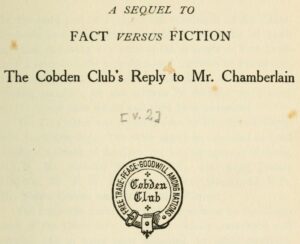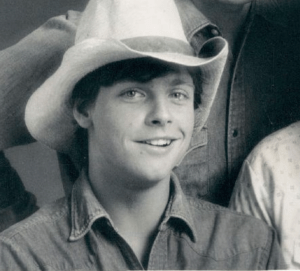
Unlike most advocates of tariffs in the Trump-Biden era, Alexander William Salter is willing to ask “Will Free Trade Bring Peace and Prosperity?” (The Wall Street Journal, October 29). The Rawls College of Business Administration academic even sees said peace as an admirable if uncertain goal, and acknowledges that the answer to the second half of the queston is probably yes.
Yalie JD Vance, and for that matter his high school social studies teacher debate opponent Tim Walz, could use some of that remedial Adam Smith 101. Vance puzzles over “the idea that if we made America less self-reliant, less productive in our own nation, that it would somehow make us better off.” The “somehow” comes into focus when imagining US states taking Vance’s “we’re going to make more of our own stuff” mentality to heart, with New Yorkers attempting to plant vast tracts of orange groves while Floridians put up ersatz Appalachian ski slopes.
Yet Salter insists that while “tariffs … doubtless make us poorer … they can also make us freer.” The trivialization of free choice in the marketplace used to be the purview of those putting down schools of economics, from James K. Galbraith dismissing what he called the “freedom to shop” to the book-length slam at Milton Friedman titled Not So Free to Choose. Restricting it makes us not so free, period.
Salter offers the conflicts embroiling the Athenian Golden Age and the modern United States as “counterexamples to the ‘capitalist peace’ hypothesis.” Those same cases were to Bertrand Russell exemplars of how “a recurrent product of commerce” is the need for merchants to cultivate a mindset of understanding “customs different from their own.”
The precarious balance between imperial and commercial power traced historically by Russell need not be left to happenstance. If war persists even after “it became impossible to ruin others without imperilling one’s own investments,” as Emile De Laveleye noted regretfully in 1871, that devotee of free trader Richard Cobden was prescient to observe how “electricity had done away with distances” when it was newly generated by steam.
As to why “Europe’s economic integration didn’t stop the cataclysm of World War I,” it was the continent’s socialists who were the champions of internationalism at the time. Tom Mann noted in the March 1915 issue of Emma Goldman’s Mother Earth that “the organized Social Democrats of Germany … singularly failed to practice the solidarity they had stood for;” Goldman’s autobiography stressed that non-participation by over ten million workers in that country alone would have had the effect of “paralyzing war preparations.”
Salter urges Americans “to weed out authoritarian rivals from critical supply chains.” The heavy-handedness that ultimately pushes them into rigidity and brittleness is coming from inside the White House.
New Yorker Joel Schlosberg is a senior news analyst at The William Lloyd Garrison Center for Libertarian Advocacy Journalism.
PUBLICATION/CITATION HISTORY


